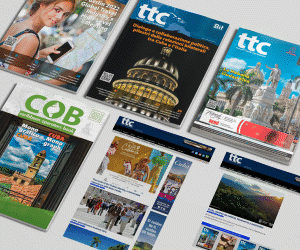Costa Rica is welcoming tourists who arrive via flights (commercial or private) or boats (yachts or sailboats). A negative coronavirus test is not required, but visitors are required to purchase insurance covering their stay in Costa Rica.
The land borders remain closed to arriving tourists in March. Residents and citizens can enter via land borders, but they will receive a quarantine order when doing so.
Costa Rica is welcoming tourists who arrive via flights (commercial or private) or boats (yachts or sailboats). A negative coronavirus test is not required, but visitors are required to purchase insurance covering their stay in Costa Rica.
The land borders remain closed to arriving tourists in March. Residents and citizens can enter via land borders, but they will receive a quarantine order when doing so.
Costa Rica has ended its coronavirus-related daytime driving restrictions throughout the country. There remain national nighttime restrictions, as well as congestion-related daytime restrictions in downtown San José only.
As of March 1:
At night (11 p.m. to 5 a.m.): A nationwide restriction will continue to be enforced.
Weekday restrictions will apply in downtown San José only. These have existed for several years as a method of reducing road congestion in the capital.
The typical list of exceptions — which includes rental vehicles, people driving to/from a hotel reservation, and people driving to/from the airport — will also continue to apply, including in San José. The official list of exceptions can be found here.
Tourism activities
All outdoor tourism activities are permitted. All national parks can be open, and beaches can remain open daily from 5 a.m. to 6 p.m.
Guests are required to wear masks in some outdoors situations, so come prepared. (e.g. you need to wear a mask when purchasing your ticket to a national park, but you can remove the mask when you’re hiking.)
Businesses and activities
The vast majority of businesses can operate (with some capacity restrictions) from 5 a.m. until 11 p.m. This includes restaurants and bars.
Activities that are not permitted include: concerts, fairs, nightclubs, large religious processions. The full list of establishments and activities that are not allowed is here.
Covid-19 testing requirements
Costa Rica does not require a negative coronavirus test to enter or exit the country. However, many foreign countries (e.g. the United States, Canada) do require a negative test if flying into or transiting through those nations.
More than 100 private labs across Costa Rica offer PCR and/or antigen coronavirus tests. Click here for a list. Note that antigen tests are accepted by the U.S. but are not valid for entry to many countries, including Canada.
Mask wearing and other measures
Masks are required in all indoor settings except when eating, while alone, or in a private residence. You can be denied entry into an establishment if you are not wearing a mask.
Some businesses require hand washing and/or have implemented temperature checks.
Source: The Tico Times

MORE NEWS











